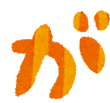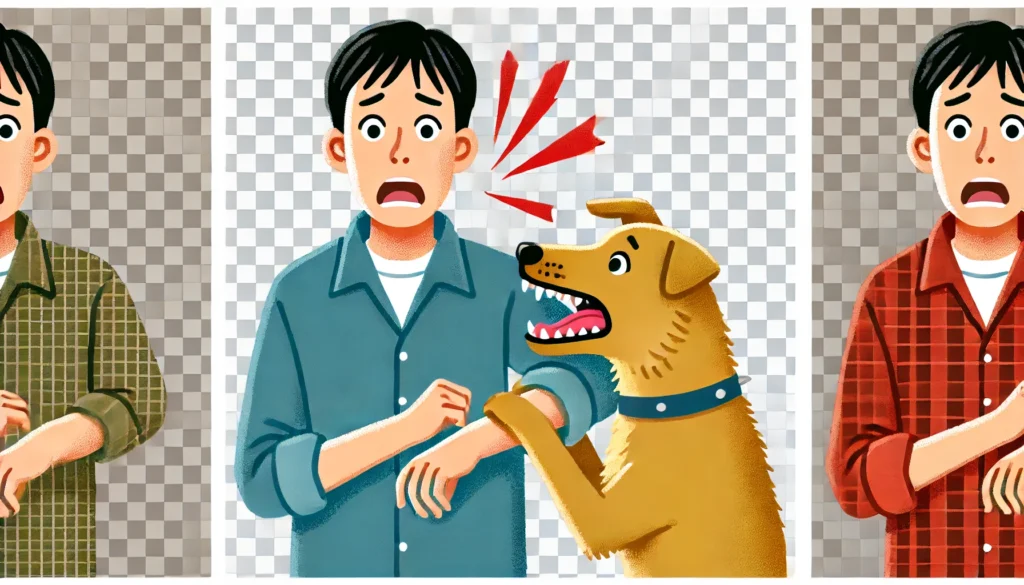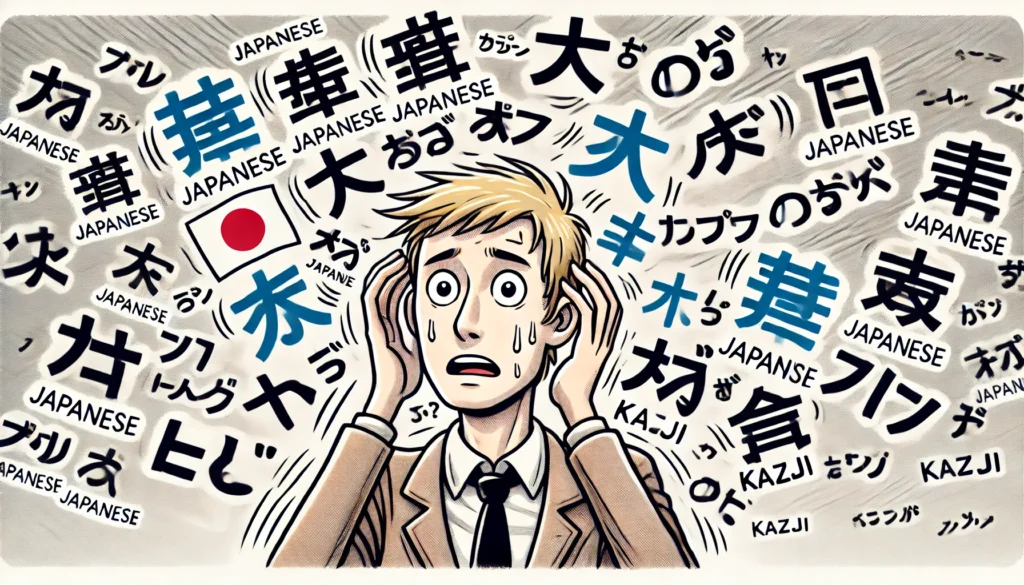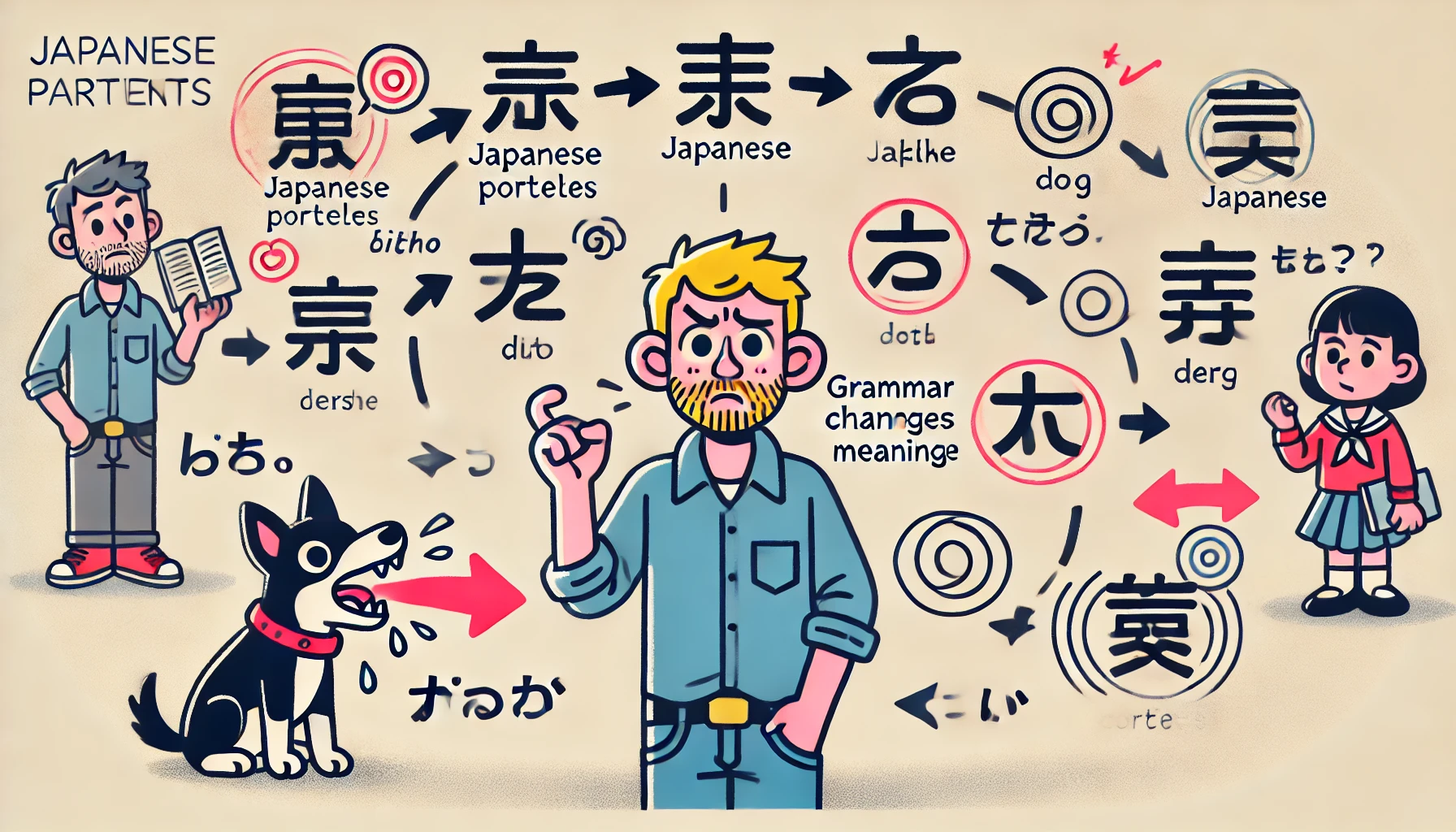1. One Sound, Big Trouble!? What Are Japanese Particles?




Japanese has a set of tiny words called particles (“joshi” in Japanese).
They’re usually just one syllable long, like “ga,” “wa,” “wo,” “ni,” “de”, and they play a huge role in making Japanese work.
But for many learners, particles are one of the most confusing parts of the language—because changing just one of them can completely change the meaning of a sentence.
Example:

• “Inu ga hito wo kanda.” → A dog bit a person.
• “Inu wo hito ga kanda.” → A person bit a dog. …Wait, what!?
Despite being so small, these little words can cause big misunderstandings!
But don’t worry—once you get used to them, particles become one of your best tools for expressing subtle meaning in Japanese.
2. What Are Particles Anyway?
Particles are small words used to show how words in a sentence relate to each other.
They function a bit like prepositions or conjunctions in English.
Examples:
• Watashi wa gakusei desu. (I am a student.)
• Hon wo yomimasu. (I read a book.)
• Tokyo ni ikimasu. (I go to Tokyo.)
• Densha de gakkou ni ikimasu. (I go to school by train.)
Without particles, it’s hard to tell who is doing what, where, or how.
Particles are what allow Japanese to have more flexible word order than English while still keeping the meaning clear.
3. When Particles Go Wrong: 5 Examples That Change Everything

① Inu ga hito wo kanda vs Inu wo hito ga kanda
• “ga” → The dog bit the person.
• “wo” → The person bit the dog. 🤯
Just one particle flip changes the subject and object.
② Kanojo ni purezento wo ageta vs Kanojo ga purezento wo ageta
• “ni” → You gave her the present.
• “ga” → She gave the present (to someone else).
③ Sensei to hanashita vs Sensei wo hanashita
• “to” → You talked with the teacher.
• “wo” → You talked about the teacher (or… something strange!).
④ Ringo wo tabetai vs Ringo ga tabetai
• “wo” → I want to eat an apple.
• “ga” → What I want to eat is an apple. (Used for emphasis)
The meaning is similar, but the focus changes.
⑤ Watashi wa kare ga suki vs Watashi wa kare wo suki
• Watashi wa kare ga suki → This is correct and natural Japanese.
• Watashi wa kare wo suki → This sounds awkward, unnatural, or even childish. It’s grammatically incorrect.
As you can see, using the wrong particle can make a sentence sound strange, confusing, or give the wrong impression.
4. But Wait — Particles Are Actually Awesome!
Even though particles seem hard at first, they’re what make Japanese so flexible and expressive.
In English, word order matters a lot:
I eat sushi. ≠ Sushi eats me.
In Japanese, thanks to particles, the word order can change, but the meaning stays clear:
• Watashi wa sushi wo taberu. (Standard)
• Watashi wa taberu. Sushi wo. (Emphasizing “what” you eat)
• Sushi wo taberu. Watashi wa. (Emphasizing “who” eats it)
Particles mark the roles of words in a sentence—so even if the order changes, the structure remains intact.
They also help when subjects are dropped (which happens all the time in Japanese):
• Ikitayo. (I went.)
• Tomodachi to ikita yo. (I went with a friend.)
• Kyoto ni, tomodachi to ikita yo. (I went to Kyoto with a friend.)
Just one character can express location, method, relationships, and more. Particles are small but mighty!
5. Final Thoughts – Tiny Words, Huge Power
Particles may be short, but they carry a lot of meaning.
If you get them wrong, your sentence might sound weird—or say something completely different!
But when you get used to them, particles become a powerful tool that lets you express yourself naturally and clearly in Japanese.
You don’t need to be perfect—everyone makes mistakes.
The key is to use them, mess up, learn, and improve.
Once particles become your friends, your Japanese will level up in a big way!
Recommended Articles







Comments